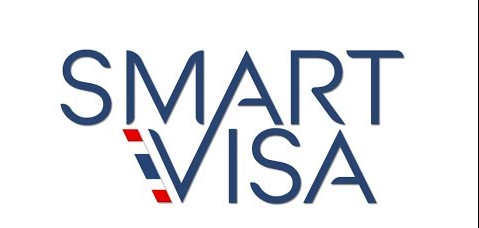The Thailand SMART Visa is a specialized visa program designed to attract highly skilled professionals, investors, executives, and entrepreneurs to help drive Thailand’s Thailand 4.0 initiative. The program seeks to foster growth in technology and innovation across ten targeted industries, including smart electronics, next-gen automotive, robotics, medical and wellness tourism, and digital technology. It offers a streamlined pathway to residency and numerous benefits tailored to enhance the long-term presence of foreign talent and capital in Thailand.
1. Types of SMART Visas
The SMART Visa program offers five main categories to cover a range of skilled professionals and investors:
a) SMART “T” (Talent)
This visa is for highly skilled individuals working in one of the ten targeted industries. Applicants must demonstrate relevant expertise and secure employment in Thailand with a minimum monthly salary of THB 100,000. The SMART T visa is valid for up to four years and can be renewed as long as eligibility requirements are maintained.
b) SMART “I” (Investor)
The SMART I visa is tailored for investors contributing to technology-based businesses or promoted projects within the targeted sectors. Applicants must invest a minimum of THB 20 million. This visa is issued for a four-year period, encouraging long-term investment in Thailand’s economic development.
c) SMART “E” (Executive)
The SMART E visa is for high-level executives working in targeted industries who hold senior management positions (e.g., CEO, director) and earn a monthly salary of THB 200,000 or higher. Executives must have at least 10 years of experience in their field to qualify.
d) SMART “S” (Startup)
The SMART S visa is available for foreign entrepreneurs looking to establish a startup in Thailand. Applicants must submit a business plan that aligns with one of the targeted industries. The initial visa is valid for one year, with the option to extend for two more years if progress aligns with the business plan.
e) SMART “O” (Other)
This category is for dependents of SMART Visa holders, allowing spouses and children to reside in Thailand. Spouses are also eligible to work without needing a separate work permit, adding further flexibility for families.
2. Application Process for SMART Visa
The application for a SMART Visa involves several steps, primarily beginning with endorsement:
a) Endorsement Process
The applicant must first obtain an endorsement from relevant Thai authorities. For example, the Board of Investment (BOI) or other specialized agencies must certify the business, employer, or project in which the applicant will work.
b) Submission of Required Documents
Applicants then submit documentation through the SMART Visa Unit or One-Stop Service Center. Required documents may include an employment offer, financial proof of investments, health insurance, and, if applicable, evidence of business plans for startups.
c) Approval and Visa Issuance
Once approved, the SMART Visa is issued with a validity period based on the specific category (typically up to four years). This visa permits holders to live, work, and travel within Thailand according to the category-specific conditions.
3. Benefits of the SMART Visa Program
The SMART Visa provides several benefits that distinguish it from other visas available to foreign professionals and investors:
- Work Permit Exemption: SMART Visa holders do not require a separate work permit, as the visa itself grants work authorization.
- Multiple Entry: The SMART Visa allows for multiple entries into Thailand, enabling visa holders to travel freely in and out of the country.
- Extended Stay: The visa can be valid for up to four years, eliminating the need for annual renewals.
- Family Benefits: Dependents can stay in Thailand under the SMART O visa, with spouses permitted to work without requiring additional permits.
4. Eligibility Criteria
Eligibility criteria vary based on the visa type but generally include:
- Educational and Professional Background: SMART T and E visa applicants must meet minimum educational standards and professional experience requirements.
- Minimum Salary: Most categories require minimum monthly salaries, typically THB 100,000 to THB 200,000, depending on the applicant’s role and visa type.
- Investment Amount: For SMART I applicants, a minimum investment of THB 20 million is required in technology-driven enterprises or government-promoted projects.
Ensuring compliance with these criteria before applying is essential for a successful SMART Visa application.
5. Renewal and Reporting Requirements
SMART Visa holders must follow standard 90-day reporting requirements by notifying the Thai Immigration Bureau of their current address every three months. Renewals depend on the applicant’s continued compliance with the initial qualifications, including maintaining employment, investment, or business requirements.
6. Challenges and Considerations
a) Strict Qualifications
The SMART Visa’s requirements are stringent, especially regarding financial, employment, and salary thresholds. Applicants must ensure all criteria are met and documented correctly, as rejections are common for incomplete applications.
b) Limited Industry Scope
The visa program is available only to individuals working in specific industries. Applicants outside these targeted industries are advised to consider alternative visa options if they do not meet the SMART Visa’s eligibility.
Conclusion
The Thailand SMART Visa is a dynamic solution for highly skilled professionals, investors, and entrepreneurs who are aligned with Thailand’s economic goals under the Thailand 4.0 initiative. Its streamlined application process, flexibility for dependents, and work permit exemption make it an attractive option for foreign talent and capital. However, meeting the SMART Visa’s stringent criteria requires careful preparation, as Thailand looks to attract the best talent and investment for its targeted industries.

